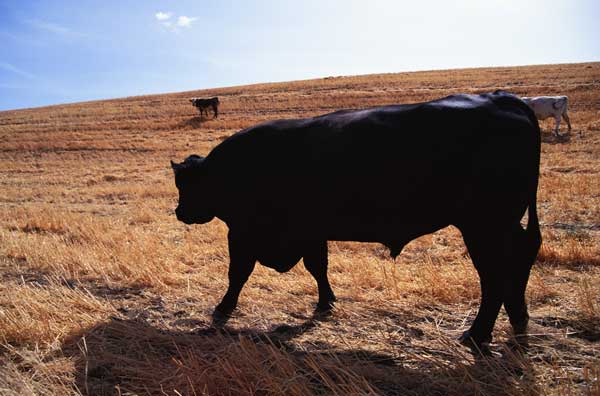
Mesquite bean toxicity result from cattle consuming a great number of mesquite beans along with a very poor quality forage diet. A vitamin B deficiency also results, causing nerve damage to the tongue.The best option would be to sell them to a packer buyer soon, as the cure of this disorder is very difficult, and can be quite expensive.
February 20, 2012

Recently I have been made aware of some problems associated with mesquite bean toxicity in cattle. This is a problem that is not often seen unless you have conditions like we have had the past several months associated with one of the worst droughts in Texas history.
The problem is a result of cattle consuming a great number of mesquite beans along with a very poor quality forage diet. The combination of the two results in the pH of the rumen becoming very acid, which then kills beneficial bacteria in the gut that are used to digest poor quality roughage or cellulose.
During this process, a vitamin B deficiency also results, causing nerve damage to the tongue, which can result in tongues that become non functional, just dangling from the mouth. This can be confused with other disorder like “woody-tongue.”
Symptoms of this disorder include:
Jaw and tongue trouble that develop gradually, usually after cattle have been eating beans for two or more months.
Animals may lose 50 percent of their weight.
Afflicted cattle may salivate, chew continuously, sometimes with nothing in their mouths, and hold their heads to one side as if chewing is painful.
About 25 percent of affected animals have a partial paralysis of the tongue, which protrudes one to 4 inches from the mouth.
At least 10 percent of poisoned animals have swelling under their jaws or tongue, and some have noticeably enlarged salivary glands.
Other Signs may include: loss of appetite, rapid weight loss, nervousness, a wild expression, bulging eyes and death.
If cattle develop mesquite bean disorder, the best practice would be to sell them to a packer buyer soon, as the cure of this disorder is very difficult, and can be quite expensive.
Since mesquite beans are quite common in much of South Texas, how does one prevent such a disorder from developing in their cattle herd? Bottom line, if you have very poor forage conditions in your pasture, you need to supplement the cattle with good quality hay of some type to prevent the rumen of your cattle from becoming too acid and killing good bacteria in the gut.
You May Also Like



